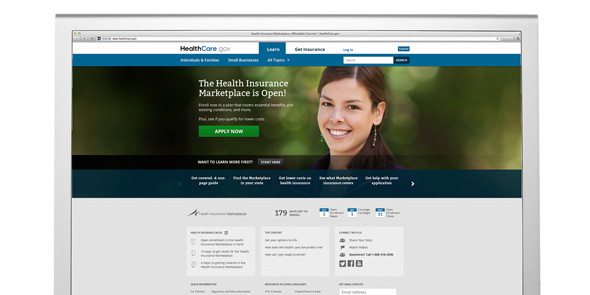Health Insurance Marketplaces launch, uninsured can enroll now, coverage starts Jan. 1

On October 1, a major provision of the Patient Protection and Affordable Care Act, or Obamacare, became available to 30 million Americans—the Health Insurance Marketplaces.
The health insurance marketplaces are online destinations for researching and enrolling in private health insurance plans.
The law mandates individuals and families obtain health insurance either through their employer or privately, and each state establish an online marketplace where can they purchase private insurance.
Through the marketplace anyone can browse insurance plans available in his or her state and enroll for coverage that commences January 1, 2014.
If a state has not set up an online marketplace by the specified deadline, as in the case of Texas, individuals can use the federal marketplace at healthcare.gov to research plans and obtain coverage.
For those with limited access to the internet or who may have difficulty researching plans online, the government has trained and provided many on the local level to assist; navigators, application assisters, certified application counselors and government agencies, such as State Medicaid and Children’s Health Insurance Program (CHIP) Offices can help individuals with the enrollment process. Local insurance agents and brokers can also assist with applications.
The Affordable Care Act, passed by Congress and signed into law by President Obama in 2010, has brought many changes to the way
individuals and families pay for healthcare expenses. The ultimate goals of the law are reducing the rate of increase in healthcare expenditures nationwide and making health insurance less expensive and available to more Americans.
In addition to the individual mandate and the creation of health insurance marketplaces, other major provisions of the law include:
- Health Insurance companies can no longer deny coverage for pre-existing conditions.
- Children are covered by their parents’ health insurance plans until age 26.
- Expansion of state Medicaid programs to individuals and families with incomes up to 133% of the federal poverty level.
- The government must provide subsidies to low-income individuals and families to make insurance affordable.
- Businesses with 50 or more employees must provide employer-sponsored health insurance.
Implementation of the ACA law faces obstruction on the state level. States controlled by conservatives have declined federal funds to expand Medicaid and implement marketplaces.
House Republicans are eager to if not repeal it in its entirety, halt certain provisions from taking effect and defund others. Political strategists acknowledge the law will be more difficult to repeal or amend after citizens start receiving benefits.

Comments are closed.